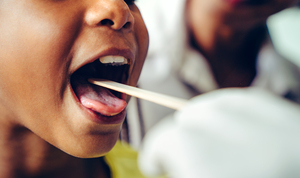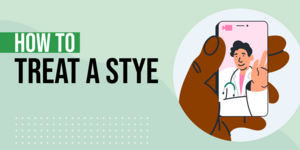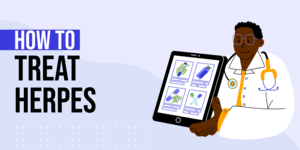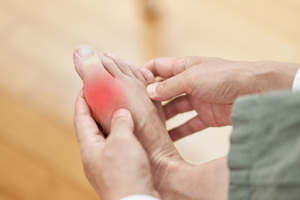Book urgent care & walk-in clinics near me in Philadelphia, PA
Own a clinic? Add your location.
Help patients book appointments with you on Solv. It's free!
19 instant-book locations

CityLife Health, Point Breeze
CityLife Health

myDoc Urgent Care, Temple University Campus
myDoc Urgent Care
Today
View more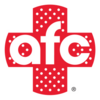
AFC Urgent Care, Northern Liberties
AFC Urgent Care

AFC Urgent Care, Port Richmond
AFC Urgent Care
Today
View more
CityLife Health, Frankford
CityLife Health
Today
View more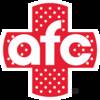
AFC Urgent Care, Roosevelt Mall
AFC Urgent Care
Today
View more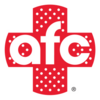
AFC Urgent Care, Torresdale
AFC Urgent Care
Today
View more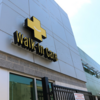
CityLife Health , Lehigh Avenue
CityLife Health
Today
View more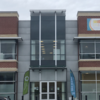
CityLife Health, Cobbs Creek
CityLife Health
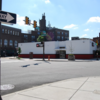
AFC Urgent Care, South Philly
AFC Urgent Care
Tomorrow
View more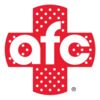
AFC Urgent Care, Roxborough
AFC Urgent Care
Tomorrow
View more
AFC Urgent Care, Pennsauken
AFC Urgent Care
Today
View more
AFC Urgent Care, Narberth
AFC Urgent Care
Today
View more
Live Urgent Care, Bellmawr
Live Urgent Care
Today
View more
AFC Urgent Care, Cheltenham
AFC Urgent Care
Tomorrow
View more
AFC Urgent Care, Deptford
AFC Urgent Care
Today
View more
AFC Urgent Care, Woodbury
AFC Urgent Care
Today
View more
AFC Urgent Care, Cinnaminson
AFC Urgent Care
Today
View more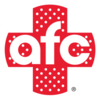
AFC Urgent Care, Conshohocken
AFC Urgent Care
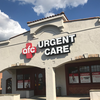
AFC Urgent Care, Gloucester Township
AFC Urgent Care
Today
View moreOwn a clinic? Add your location.
Help patients book appointments with you on Solv. It's free!
Getting to Know the Philadelphia Area
Philadelphia, the City of Brotherly Love, is not only known for its rich history and iconic cheesesteaks but also for its exceptional healthcare facilities. When it comes to urgent care centers, Philly offers a variety of options conveniently located throughout its diverse neighborhoods. Let's explore some of the most popular urgent care locations in this vibrant city, where colonial charm meets modern medicine.
In the heart of Center City, just a stone's throw from the bustling Rittenhouse Square, you'll find Vybe Urgent Care on Chestnut Street. This facility is perfectly situated for those enjoying a day out shopping or dining in the area bounded by Broad Street to the east and 22nd Street to the west. For visitors exploring the historic Old City, MyDoc Urgent Care on 3rd Street provides quick medical attention within walking distance of Independence Hall and the Liberty Bell.
Heading north to the trendy Fishtown neighborhood, another Vybe Urgent Care located on Aramingo Avenue stands ready to serve residents and visitors alike. This location is easily accessible from Delaware Avenue, which runs parallel to the Delaware River, and is not far from the iconic SugarHouse Casino.
In the vibrant Northern Liberties area, often referred to as NoLibs by locals, Temple ReadyCare on Spring Garden Street offers urgent medical services. It's conveniently located near the intersection of 6th Street and Spring Garden Street, making it easily accessible for those enjoying the neighborhood's eclectic mix of bars, restaurants, and boutiques.
For the academic crowd in University City, Penn Medicine 24/7 Emergency Care at Spruce Street is a go-to option. Situated close to the University of Pennsylvania campus and easily reached from the Schuylkill Expressway (I-76), this facility caters to students, faculty, and residents of the area.
South of Center City, in the lively Graduate Hospital neighborhood, Jefferson Urgent Care on South Street provides medical services to those between Broad Street and the Schuylkill River. This location is perfect for anyone exploring the vibrant South Street corridor or attending events at the nearby Philadelphia's Magic Gardens.
In the charming Bella Vista neighborhood, known for its Italian Market, Vybe Urgent Care on South Broad Street offers medical attention near the intersection of Broad and Washington Avenue. This facility is ideally situated for those sampling culinary delights or shopping for fresh produce in the area.
For residents and visitors in the up-and-coming Passyunk Square neighborhood, Another Vybe Health Urgent Care is located on Broad Street. Located near the famous "Singing Fountain" at the intersection of Tasker Street and East Passyunk Avenue, this center is easily accessible for those enjoying the area's hip restaurants and boutiques.
Lastly, in the quaint and hilly Manayunk neighborhood, Main Line Health Urgent Care on Main Street offers medical services to locals and visitors alike. Nestled along the Schuylkill River and easily reached from Ridge Avenue, this facility serves as a medical haven for those exploring Manayunk's charming shops and riverside trails.
As you navigate through Philadelphia's diverse neighborhoods, from the historic streets of Old City to the trendy corridors of Fishtown and NoLibs, rest assured that quality urgent care is never far away. Whether you're a local or a visitor, these conveniently located facilities ensure that you can quickly receive medical attention while experiencing all that the City of Brotherly Love has to offer.
How Much Does Urgent Care Cost In Philadelphia?
The cost of urgent care in Philadelphia can vary widely based on several factors, including the type of services provided, the specific facility, and whether you have insurance. Generally, urgent care centers are designed to be a more affordable alternative to emergency room visits, making them accessible for non-life-threatening conditions that require prompt attention.
For those with insurance, the out-of-pocket expenses will depend on your plan's coverage, including copays and deductibles. It's advisable to check with your insurance provider to understand your benefits and any potential costs you might incur. In addition to the basic visit fee, additional costs may arise if diagnostic tests, such as X-rays or lab work, are needed. These services can influence the overall expense, so it’s a good idea to inquire about any potential additional charges when you arrive.
What is the cost of an urgent care visit in Philadelphia without insurance?
If you are uninsured or underinsured, many urgent care facilities offer transparent pricing and payment options, allowing you to know what to expect before receiving care. Some centers may also provide discounts for self pay or cash payments or offer sliding scale fees based on income.
What Conditions are Treated in Philadelphia?
Urgent care centers in Philadelphia provide a wide range of medical services to address various non-life-threatening conditions. These facilities are equipped to handle many common health issues, ensuring that patients receive timely care without the need for a visit to the emergency room. Below is a list of conditions commonly treated at urgent care centers in the city, including those that offer X-ray services and other relevant treatments:
Commonly treated conditions include:
-
Minor injuries like sprains and strains, minor fractures, cuts and lacerations requiring stitches, and burns.
-
Respiratory Issues, including colds and flu, allergies and hay fever, asthma attacks, sinus infections, and bronchitis
-
Gastrointestinal problems, including nausea and vomiting, diarrhea, abdominal pain, dehydration.
-
Skin conditions like rashes and hives, insect bites and stings, fungal infections, and acne.
-
Infections, including urinary tract infections (UTIs), strep throat, ear infections, and conjunctivitis (pink eye).
-
Musculoskeletal pain, like back pain, joint pain, tendonitis, or sports injuries.
-
Preventive care, including vaccinations and immunizations, and physicals for school or sports.
-
Diagnostic services, including x-rays for fractures and other injuries, and lab tests for infections, blood work, and more.
-
Occupational health services, including work-related injuries, drug screenings, and pre-employment physicals.
-
Other services may include travel medicine consultations, and minor surgical procedures like foreign object removal or abscess drainage.
Urgent care centers in Philadelphia are designed to provide quick and efficient care for these conditions, often with extended hours to accommodate patients' needs. Many facilities are equipped with on-site diagnostic capabilities, including X-ray machines and laboratories, allowing for immediate evaluation and treatment. This accessibility makes urgent care an excellent option for those seeking prompt medical attention without the long wait times typically associated with emergency departments.
Philadelphia Urgent Care FAQs
Where can I find the best urgent care center in Philadelphia?
To find the best urgent care center in Philadelphia, consider checking online platforms that aggregate reviews, such as SolvHealth, where you can read patient experiences and ratings. Popular options that consistently receive high marks include Vybe Urgent Care, known for its friendly staff and efficient service.
What are the typical wait times at Philadelphia urgent care centers?
Typical wait times at urgent care centers in Philadelphia can vary significantly based on factors such as the time of day, day of the week, and the overall patient volume. Generally, you can expect wait times to range from about 15 to 60 minutes. During peak hours, such as evenings and weekends, wait times may be longer. Many urgent care facilities provide estimated wait times on their websites or through mobile apps, allowing you to plan your visit accordingly.
Which urgent care centers in Philadelphia are open 24/7?
In Philadelphia, there are no urgent care clinics that provide 24/7 care. However, this may change, so it’s essential to check the specific location you plan to visit, as not all urgent care centers operate around the clock, and availability may vary.
Do urgent care centers in Philadelphia accept walk-ins, or do I need an appointment?
Most urgent care centers in Philadelphia are designed to be accessible and convenient, meaning they typically accept walk-ins without the need for an appointment. However, during busy times, it might be beneficial to call ahead or check if the center has an online check-in system to minimize wait times and ensure timely service. You can use SolvHealth to hold your place in line at several Philadelphia area urgent care clinics.
Can I get a COVID-19 test at an urgent care center in Philadelphia?
Yes, many urgent care centers in Philadelphia offer COVID-19 testing, including both rapid antigen tests and PCR tests. These centers have adapted their services to meet the ongoing demand for testing. It’s advisable to call ahead or visit the center’s website to confirm the availability of testing and understand any specific requirements, such as whether you need to bring identification or insurance information.
What other services do Philadelphia urgent care centers provide beyond basic medical care?
In addition to treating common illnesses and injuries, many urgent care centers in Philadelphia offer a variety of additional services. These can include on-site X-rays for diagnosing fractures and other injuries, laboratory testing for infections, vaccinations for flu and other diseases, and sports physicals for children and adolescents. Some centers also provide occupational health services, such as drug screenings and work-related injury assessments, making them a versatile option for many healthcare needs.
Are there pediatric urgent care centers in Philadelphia?
Yes, Philadelphia is home to several pediatric urgent care centers that specialize in treating children and adolescents. These facilities are staffed by healthcare professionals trained in pediatric care and are equipped to handle a range of childhood illnesses and injuries. They focus on providing age-appropriate care in a comfortable environment, ensuring that young patients receive the attention they need without the stress of a traditional emergency room setting. Some of the best pediatric urgent care clinics in Philly include:
-
Children’s Hospital of Philadelphia Urgent Care, with locations in Glen Mills, Chalfont, and Abington.
-
Redeemer Urgent Care in greater Philadelphia
-
AFC South Philadelphia Children’s Urgent Care
How do I choose between an emergency room and urgent care in Philadelphia?
Choosing between an emergency room and urgent care in Philadelphia depends largely on the severity of the medical issue at hand. Emergency rooms are best suited for life-threatening conditions, such as severe trauma, chest pain, or difficulty breathing, where immediate and comprehensive care is necessary. On the other hand, urgent care centers are ideal for non-life-threatening issues that require prompt attention, such as minor injuries, infections, or illnesses. If you’re unsure, consider the severity of the symptoms and whether they could worsen without immediate treatment.
What are the most highly rated urgent care centers in Philadelphia?
Some of the most highly rated urgent care centers in Philadelphia include Vybe Urgent Care, which is praised for its friendly and efficient staff, as well as CityMD, known for its comprehensive service offerings and convenient locations throughout the city. MedExpress also receives positive feedback for its quality of care and patient-centered approach. Checking online reviews and ratings with SolvHealth can help you identify which center best meets your specific needs based on patient experiences and satisfaction.
Top 7 Local FAQs About Philadelphia Healthcare
Why do urgent care centers close at 8 pm?
Urgent care centers typically close at 8 pm to balance the demand for services with operational costs. Many patients seek care during evenings after work, but the volume decreases significantly later at night, making extended hours less practical.
Can an urgent care provider in Philadelphia treat more serious conditions?
While urgent care providers can treat a variety of non-life-threatening conditions, they are not equipped to handle serious medical emergencies. For severe conditions, patients are advised to visit an emergency room.
What do urgent care centers treat?
Urgent care centers treat a wide range of conditions, including minor injuries (like sprains and fractures), illnesses (such as colds and flu), infections, and routine services like vaccinations and physicals.
Low-cost healthcare with no insurance?
Low-cost healthcare options for individuals without insurance may include community health clinics, sliding-scale fee clinics, and urgent care centers that offer payment plans or reduced fees based on income.
What is healthcare for low-income people in PA?
In Pennsylvania, low-income individuals may access healthcare through programs like Medicaid, which provides coverage for eligible residents, or through community health centers that offer services at reduced costs.
Which Philadelphia urgent care centers offer COVID-19 testing?
Many urgent care centers in Philadelphia offer COVID-19 testing, including facilities like CityMD, AFC Urgent Care, and others. It’s advisable to check their websites or call ahead for availability and specific testing options.
Do Portland or Philadelphia have better hospitals?
The quality of hospitals can vary based on specific metrics such as patient outcomes, available specialties, and patient satisfaction. Both Portland and Philadelphia have reputable hospitals, but determining which city has "better" hospitals can depend on individual needs and preferences.
Common Health Insurance Companies in PA
Pennsylvania is home to a diverse array of health insurance providers, each offering a unique set of plans, coverage options, and network affiliations. From large national insurers to regional companies, residents have the opportunity to select from a variety of plans that cater to different demographics, including individuals, families, and businesses.
Below is a list of some of the most common health insurance companies operating in Pennsylvania, known for their comprehensive coverage options and customer service.
-
UnitedHealthcare
-
EmblemHealth
-
Anthem Blue Cross Blue Shield
-
Aetna
-
Oscar Health
-
Cigna
-
Fidelis Care
-
MetroPlus Health Plan
-
Healthfirst
-
Empire BlueCross BlueShield
These companies offer a range of health insurance plans, including individual, family, and employer-sponsored options. It’s important to review each provider's specific offerings and network to find the best fit for your healthcare needs.
Philadelphia Healthcare News in 2024
-
American Family Care Becomes Largest Provider of Urgent Care in Five-County Philadelphia Region
Yahoo Finance (October 10, 2023) -
Philadelphia opens first urgent care walk-in clinic for mental health needs
WHYY News Philadelphia (August 6, 2024) -
Philadelphia urgent care provider raises $8.9M to support growth plans
Philadelphia Business Journal (Oct 26, 2023)
Solv has strict sourcing guidelines and relies on peer-reviewed studies, academic research institutions, and medical associations. We avoid using tertiary references.
Related Searches
COVID-19 Testing in Philadelphia, PA
Flu Test in Philadelphia, PA
Hepatitis test in Philadelphia, PA
DOT Exam in Philadelphia, PA
Cholesterol Test in Philadelphia, PA
Allergy Testing in Philadelphia, PA
COVID-19 Pill in Philadelphia, PA
Pulmonary Function Test in Philadelphia, PA
STD Testing in Philadelphia, PA
Lab Tests in Philadelphia, PA
Vitamin D Test in Philadelphia, PA
Pediatric Urgent Care in Philadelphia, PA
Dermatologists in Philadelphia, PA
Glucose Test in Philadelphia, PA
Blood Test in Philadelphia, PA
Drug Test in Philadelphia, PA
RSV Test in Philadelphia, PA
Pregnancy Test in Philadelphia, PA
H Pylori Test in Philadelphia, PA
Thyroid Test in Philadelphia, PA
Ear Wax Removal in Philadelphia, PA
Sports Physicals in Philadelphia, PA
Urinalysis in Philadelphia, PA
Diabetes Test in Philadelphia, PA
Mono Test in Philadelphia, PA
Diagnostic Test in Philadelphia, PA
Basic Metabolic Panel in Philadelphia, PA
A1C Test in Philadelphia, PA
Strep Test in Philadelphia, PA
DNA Test in Philadelphia, PA
TB Test in Philadelphia, PA
CMP Test in Philadelphia, PA
Retail Clinic in Philadelphia, PA
Aetna Urgent Care
Blue Cross Blue Shield Urgent Care
Cigna Urgent Care
COVID-19
Flu
United Health Urgent Care
» All services in Philadelphia, PAFind urgent care
Nearby cities
Popular Brands in Philadelphia
Everyday Healthcare, Simplified
Expert advice to help you live your best life

